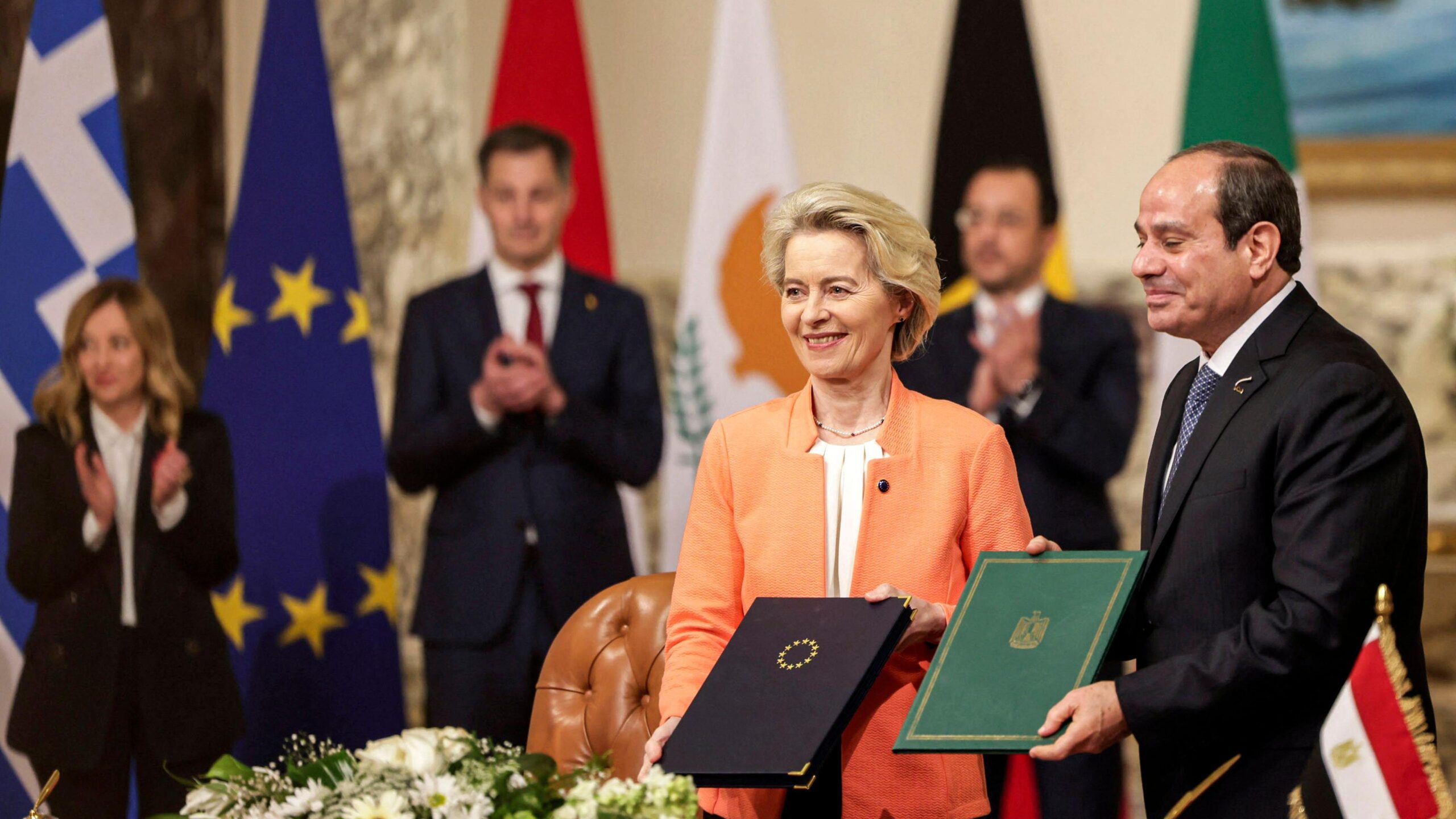On Sunday March 17, the European Union announced an eight billion dollar aid package to Egypt. The deal was signed after concerns over migration began mounting, amidst rising economic hardships and escalating conflicts in the region, particularly in Gaza and Sudan.
The signing ceremony took place on Sunday afternoon after Egyptian president Abdel Fattah as-Sisi met with European Commission President Ursula von der Leyen and leaders from EU countries close to the Mediterrenean, namely Italy, Cyprus, Greece, Austria and Belgium.
The aid package, known as the Joint Declaration, includes loans and grants over a period of three years and consists mostly (5.4 billion dollars) of macro-financial assistance.
With a focus on curbing migration, the deal fits well with a decade-long trend in maritime border coordination between Egypt and EU countries as they seek to further fortify Egypt’s borders, especially with Libya.
In the EU’s Good Graces
Amidst worries by many activists and organizations around the world over Egypt’s human rights records, the deal further highlights the EU’s interest-based relationship with as-Sisi.
For the last decade, as-Sisi was able to secure a plethora of deals with European countries in return for curbing migration and fortifying maritime and land borders. In return, European countries on their part have looked away from the Egyptian government’s human rights abuses and rising inequalities.
International non-governmental organization Human Rights Watch claimed that the deal “rewards authoritarianism” and that it mimics similar EU deals with Tunisia and Mauritania in its logic to “stop migrants, ignore abuses.”
More recently, dozens of Egyptian protesters were arrested in demonstrations against Sisi amid deteriorating living conditions and soaring inflation rates.
In addition, vast public discontent persists vis-à-vis Egypt’s approach to matters in Gaza, with many Arab organizers voicing their displeasure with as-Sisi’s role in the conflict. Last month, per example, multiple demonstrations took place in front of the Egyptian embassy in Lebanon.
Others have theorized that Egyptian authorities are potentially maneuvering to exploit the situation in Gaza behind the scenes, as the EU deal was not the only one to provide foreign currency to cash-strapped Egypt.
Amidst Israeli forces’ ongoing genocidal campaign in Gaza, which has pushed over a million Palestinians close to the Egyptian border at the Rafah crossing, as-Sisi claimed that Egypt will not allow forced displacement of Palestinians from Gaza.
In addition, Egypt has been involved in continued ceasefire talks for the last several months, all of which have been far from fruitful, with as-Sisi asserting that Egypt is striving to secure a ceasefire and increase the entry of aid to Gaza.
A Growing Refugee Crisis
According to governmental sources, Egypt hosts around nine million migrants, many of whom come from Sub-Saharan Africa and neighboring Arab countries. Throughout the years, Egypt continued receiving funding from the EU to avoid Egypt becoming a transit country through which African and Arab migrants make their way towards Europe.
After the meeting with as-Sisi, EU Commission president Ursula von der Leyen highlighted the importance of the partnership with Egypt in a post on X (previously Twitter), where she described Egypt as a “pillar of stability and security in the Middle East”, to which many in the comments section replied by highlighting Egypt’s record of corruption and authoritarianism and its treatment of Palestinians fleeing from Gaza under as-Sisi.


